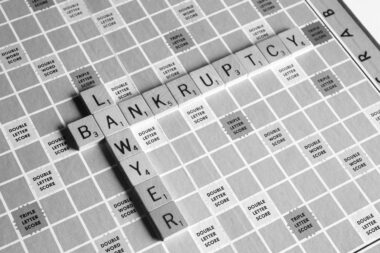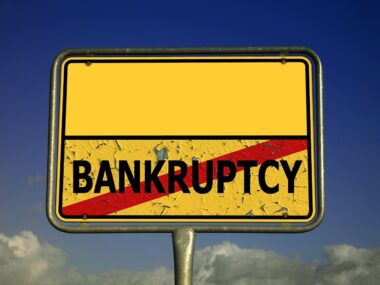Protecting Consumer Rights During Bankruptcy of Businesses
Insolvency and bankruptcy processes often raise significant concerns regarding consumer rights. These scenarios can affect consumers, employees, and suppliers, creating an environment where understanding one’s rights becomes essential. The intricacies of business bankruptcy require consumers to remain informed and proactive. Firstly, consumers must recognize that their rights are protected under various laws and regulations. Various legal frameworks exist that safeguard consumer interests during insolvency proceedings. These include provisions for refunds and compensation, ensuring consumers are not left at a loss. It’s crucial for consumers to familiarize themselves with these regulations to navigate the complexity of the bankruptcy process effectively. Furthermore, when a business declares bankruptcy, all claims may be prioritized differently, impacting consumer recovery. Often, unsecured creditors, which include consumers, face challenges in recovering owed debts. Consumers must be aware of the procedures for submitting claims and the timelines involved in this process. Engaging with professionals in the field of law may aid consumers in asserting and understanding their rights during these challenging circumstances. Staying informed and proactive during a business’s bankruptcy is vital for preserving consumer rights.
As businesses face bankruptcy, consumer protections can vary based on jurisdiction. Consumers often wonder how their rights are upheld across different regions, as laws differ substantially. In many cases, bankruptcy provides a structured setting for businesses to settle their debts, but this does not mean consumers should accept losses silently. Understanding local laws can empower consumers to take action. Bankruptcy law typically confers certain rights upon consumers, allowing them to pursue claims for outstanding debts. These rights may include filing a claim with the bankruptcy court to recover healthcare, service, or product-related losses. Consumers may also be eligible for priority treatment, which guarantees that their claims are addressed before other unsecured creditors. Moreover, several advocacy groups and agencies exist to assist consumers in understanding their rights in bankruptcy situations. These entities provide resources that can guide consumers in filing claims effectively and navigating complex legal processes. Legal representation can further ensure that the consumer’s voice is heard, so exploring options for legal support is a wise move. Staying informed about consumer rights in bankruptcy helps protect economic interests in a time of uncertainty.
Role of Legal Representation
In the context of business bankruptcy, legal representation plays a crucial role in protecting consumer rights. Consumers must consider obtaining legal advice when navigating the intricate bankruptcy landscape. A qualified attorney can assist in understanding the implications of a business’s bankruptcy on individual consumer claims. They can also help consumers file the necessary paperwork within applicable timelines and advocate for their rights effectively. Legal professionals can analyze a consumer’s situation, estimating the potential for recovering debts and providing guidance throughout the proceedings. Additionally, their expertise helps consumers understand the ramifications of the bankruptcy filings on contracts and agreements made with the bankrupt business. Legal representation can also mitigate any misunderstandings about prioritization of claims in bankruptcy court. Lastly, an attorney can represent a consumer’s interests, ensuring they receive fairness in dealings with the bankruptcy estate. The importance of having a knowledgeable advocate cannot be overstated, as this can lead to enhanced recovery of amounts owed. Overall, qualified legal counsel enhances consumer rights during the challenging period when businesses undergo the bankruptcy process.
Another significant aspect of consumer rights during bankruptcy is the concept of fraudulent transfers. Sometimes, companies engage in activities designed to shield assets before filing for bankruptcy. Such actions can adversely affect consumer rights and limit recovery options. Consumers who suspect that a business has given away assets or payments to evade financial responsibilities should consult legal professionals. Knowledge of fraudulent transferring of assets can enable consumers to take action and potentially recover lost amounts owed. Generally, the law provides tools to ensure that consumers are protected from unscrupulous actions that may arise during bankruptcy proceedings. Legal avenues exist to challenge these fraudulent transfers if discovered. Consumers must remain vigilant and proactive about any transactions they believe could be fraudulent, as this directly impacts their ability to recover owed debts. Furthermore, it becomes necessary to report any suspicious activities discovered during the bankruptcy process to the bankruptcy trustee or attorney general. The successful identification of fraudulent activity may enhance the likelihood of recovering lost funds. Understanding these issues empowers consumers to safeguard their rights more effectively as bankruptcy unfolds.
Importance of Documentation
Documentation assumes critical importance throughout the bankruptcy process, especially concerning consumer claims. Reliable records empower consumers to substantiate their claims in bankruptcy proceedings. Consumers should maintain comprehensive documentation related to their transactions with the bankrupt business. This includes receipts, correspondence, contracts, and proof of payment. When a business faces bankruptcy, accurate documentation serves as critical evidence in support of claims against the bankrupt estate. Failure to produce such records can significantly hinder the chances for recovery. Also, consumers need to be aware of the deadlines for submitting documentation and claims, as missing these dates can lead to financial losses. Legal advisors may provide guidance to ensure that all necessary documents are gathered and submitted in a timely manner. Furthermore, staying organized will help consumers keep track of claims progress throughout the proceedings. Correct documentation is crucial not only for protecting consumer rights but also for maximizing potential recovery from insolvent businesses. Consumers must prioritize keeping records and understanding what is necessary for substantiating claims in the bankruptcy process.
In addition to the challenges faced during bankruptcy, consumers must also stay alert regarding possible deceptive practices. Some businesses may attempt to misrepresent their bankruptcy status. This includes misleading consumers about their ability to fulfill obligations or payments. Consumers need to remain vigilant and informed about their rights when engaging with businesses that have declared bankruptcy. Education becomes vital, enabling consumers to discern between legitimate processes and deceptive tactics. Communicating with bankruptcy attorneys can provide valuable insights into possible risks. It’s crucial for consumers to investigate claims made by bankrupt businesses effectively, ensuring that they remain protected against any fraudulent activities. Additionally, regulatory agencies often oversee bankruptcy procedures, offering avenues for consumers to report any unethical conduct they encounter. Engaging with these agencies can improve oversight, contributing to a more equitable process for all. Through understanding and vigilance, consumers can assert their rights against businesses that attempt to sidestep their responsibilities. Staying informed not only helps protect individual interests but also fortifies consumer rights on a larger scale.
Conclusion
In conclusion, consumers must be proactive in understanding their rights amid business bankruptcy proceedings. Empowering oneself with knowledge of consumer protections is essential in navigating these complex situations. Various laws exist to safeguard interests and ensure rightful recovery of owed debts, but awareness is vital. Legal representation plays a crucial role in advocating for consumer rights during bankruptcy, ensuring proper documentation and action. It’s imperative for consumers to have clarity on the nuances of bankruptcy law as they engage in this process. By remaining informed, organized, and vigilant, consumers can protect their rights effectively. The potential for fraudulent activity and deceptive practices emphasizes the need to have a conscious approach when dealing with bankrupt businesses. Therefore, forging connections with legal experts and regulatory agencies will be beneficial in navigating these waters. Together, our understanding of these dynamics can lead to a more just and equitable framework for resolving consumer claims in bankruptcy scenarios. As bankruptcy remains a prevalent issue in the business landscape, safeguarding consumer rights remains paramount, requiring active participation and awareness from those affected.








